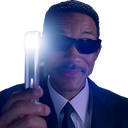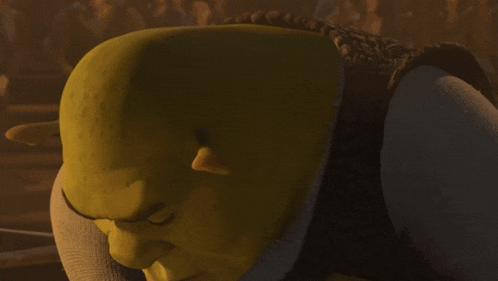Anime & Manga One Piece Spoilers - The Waiting Room
- Thread starter Bogard
- Start date
- Tags all hail peroroncino capybara room cattitude coc top 1 degenerate franky will say jewnicorn fitness on panel giselle is a sanji enjoyer hiyori <3 kaido>akainu linlin>your fav pero betrayed cruzeiro 1997 peroroncino4admin playa4admin real madrid > jobbermund reloaded is guilty and i can prove it tac for super admin this goblin is hungry for hints tobirama best hokage urouge top 1 wepo negs your fav woro top 1
More options
Who Replied?
@RayanOO bum it's a gaben chapter why aren't you snjani fans opening the threads?
LETS GOOOOOOOOOOOOOOOOOOOOOOOOOOOOOOOOOOOOOOOOOOOOOOOOOOOOOOOo
I'm still not sure about the Language to go for lol.
I got into DeShaw as a front end developer intern
But planning to switch to AI/ML Engineer. Not really sure whether to keep on in this Full stack developer field or switch.
I got into DeShaw as a front end developer intern
But planning to switch to AI/ML Engineer. Not really sure whether to keep on in this Full stack developer field or switch.
I would suggest stick to Full Stack and learn more about how different solutions are designed as you work on it.
Note as a fresher AI/ML is nothing to the industry. There is not as much work a fresher can do or would be given in AI/ML, most important work is relied upon an expert in the field. Majority just do same old stuff for projects which basically is just using library functions and what others have done.
.
Let’s start with the obvious: Thug completely redefined what a rapper could sound like. Not just with lyrics, but with his voice itself — stretching, distorting, whispering, screeching, flipping between melodic crooning and erratic flows like a jazz musician with a trap beat. Bowie had his personas and theatricality, but Thug does sonic shapeshifting in real-time. He doesn’t play characters — he is the evolution, constantly.
Then there’s the fashion and gender stuff. Bowie made androgyny cool for rock audiences in the ‘70s — but it was always wrapped in performance art and alter-egos. That was palatable for white audiences because it was a costume. Thug wore a full dress on the cover of Jeffery and just stood there, fearless. No explanation. No character. Just him. In hip-hop. That’s not just fashion — that’s real subversion. And it shifted the culture in a way Bowie never had to risk.
Also, Bowie’s “genre-bending” is often overstated. He hopped between rock, funk, pop, and new wave — all still under the umbrella of Western pop music. Thug? He’s mixed trap, punk, R&B, experimental soul, country twangs, and created entirely new vocal languages in the process. His catalog is insane in both volume and variety. Barter 6, Jeffery, Beautiful Thugger Girls, Punk, So Much Fun — each one could be from a different artist, but it’s always unmistakably him.
And unlike Bowie, Thug’s influence is alive right now. You can hear him in everything from Lil Uzi to Gunna to Playboi Carti to Bad Bunny to Yeat to hyperpop to mainstream radio. Bowie’s influence is historical. Thug’s is active, dominant, and still unfolding.
Bowie was great for his time. But let’s not pretend that glitter suits and sci-fi metaphors are more revolutionary than dismantling masculinity in the heart of rap, redefining vocal performance in the digital age, and spawning a whole generation of genreless artists in your wake. Young Thug is doing it for real, in real time.
Let’s start with the obvious: Thug completely redefined what a rapper could sound like. Not just with lyrics, but with his voice itself — stretching, distorting, whispering, screeching, flipping between melodic crooning and erratic flows like a jazz musician with a trap beat. Bowie had his personas and theatricality, but Thug does sonic shapeshifting in real-time. He doesn’t play characters — he is the evolution, constantly.
Then there’s the fashion and gender stuff. Bowie made androgyny cool for rock audiences in the ‘70s — but it was always wrapped in performance art and alter-egos. That was palatable for white audiences because it was a costume. Thug wore a full dress on the cover of Jeffery and just stood there, fearless. No explanation. No character. Just him. In hip-hop. That’s not just fashion — that’s real subversion. And it shifted the culture in a way Bowie never had to risk.
Also, Bowie’s “genre-bending” is often overstated. He hopped between rock, funk, pop, and new wave — all still under the umbrella of Western pop music. Thug? He’s mixed trap, punk, R&B, experimental soul, country twangs, and created entirely new vocal languages in the process. His catalog is insane in both volume and variety. Barter 6, Jeffery, Beautiful Thugger Girls, Punk, So Much Fun — each one could be from a different artist, but it’s always unmistakably him.
And unlike Bowie, Thug’s influence is alive right now. You can hear him in everything from Lil Uzi to Gunna to Playboi Carti to Bad Bunny to Yeat to hyperpop to mainstream radio. Bowie’s influence is historical. Thug’s is active, dominant, and still unfolding.
Bowie was great for his time. But let’s not pretend that glitter suits and sci-fi metaphors are more revolutionary than dismantling masculinity in the heart of rap, redefining vocal performance in the digital age, and spawning a whole generation of genreless artists in your wake. Young Thug is doing it for real, in real time.
















